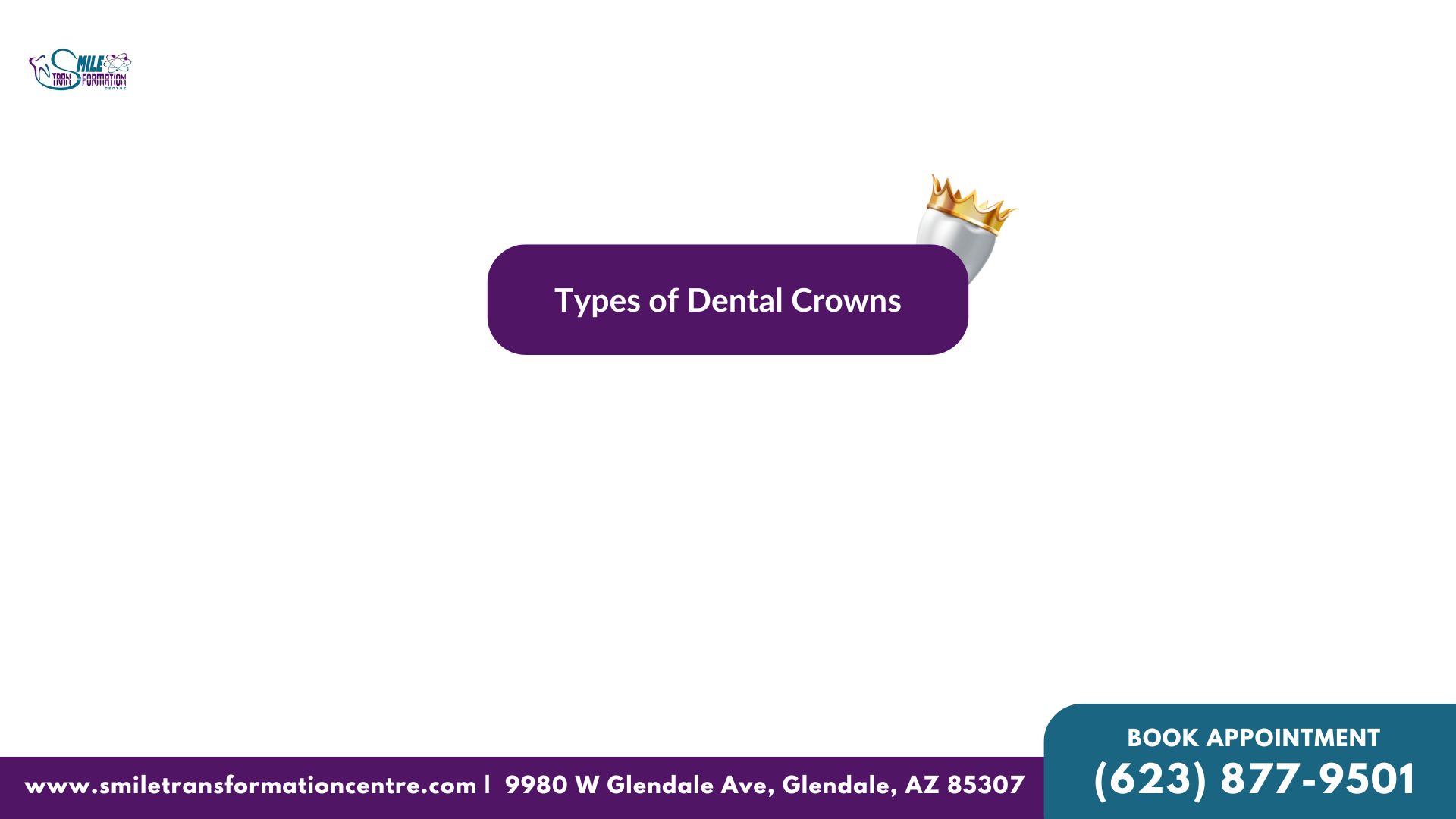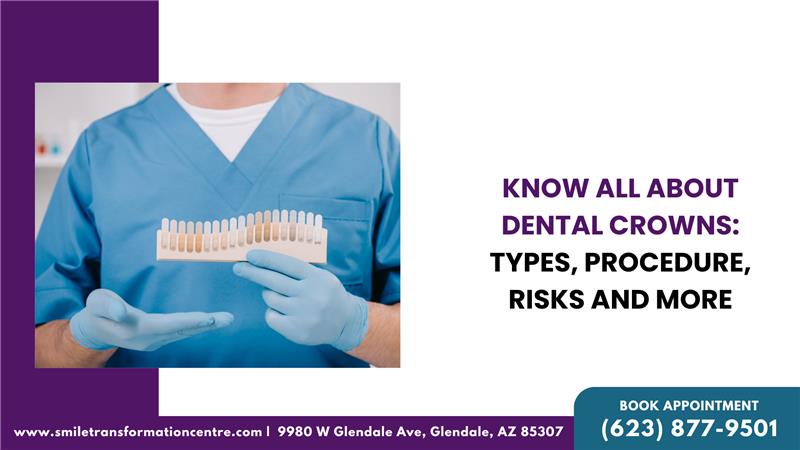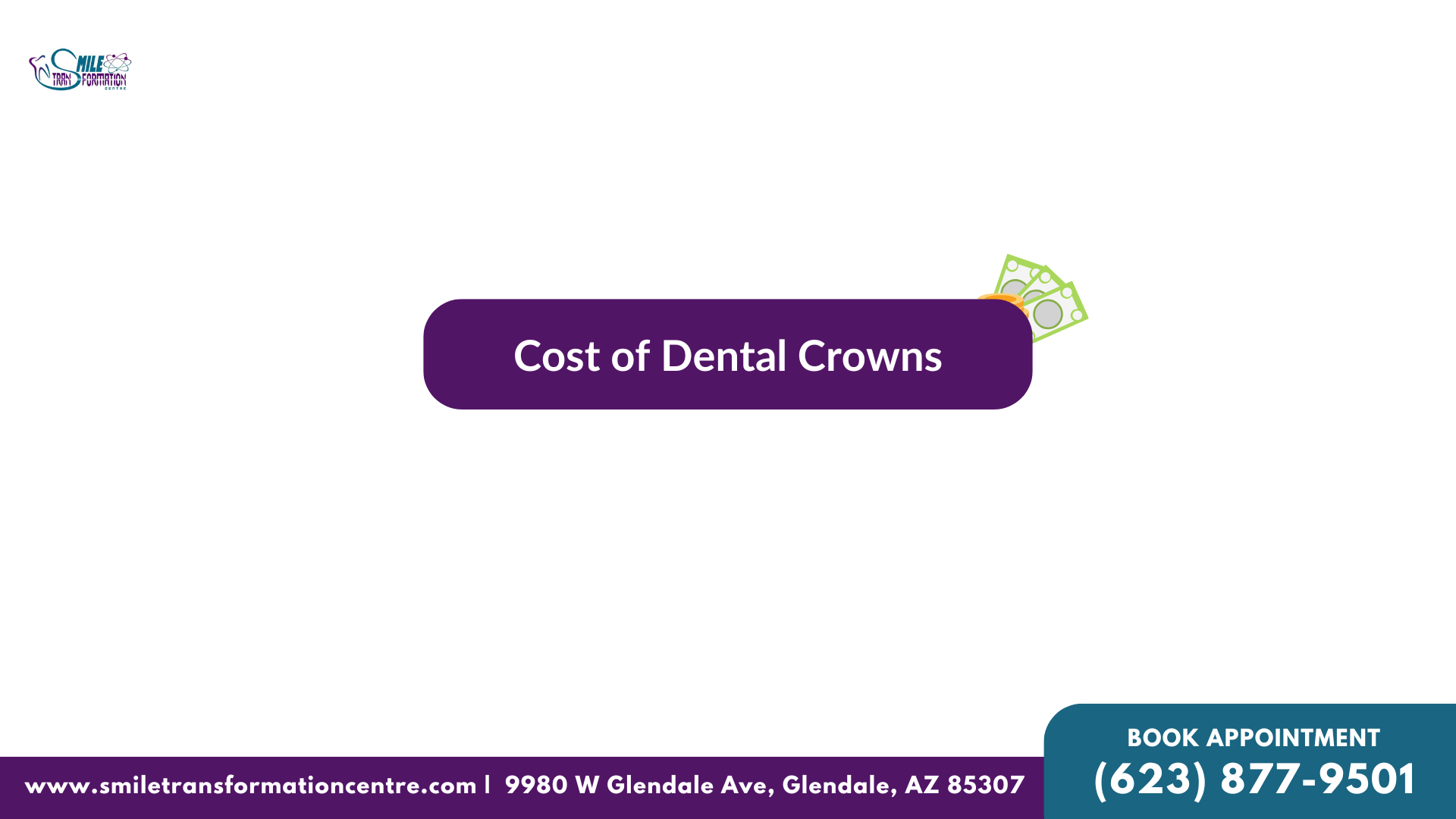Dental Crowns can be the most effective solution for treating dental issues such as severe decay, broken teeth, and cosmetic challenges. Well-fitting dental crowns improve teeth’s general functionality in addition to their look. Crowns are a type of cosmetic procedure that can strengthen or reshape the teeth. Teeth that are fractured, worn down, or have parts ruined by dental decay require crowns the most. They cover every exposed tooth above the gum line and are tightly glued in place.
Dentists Suggest Dental Crowns For The Following Reasons
- The patient’s tooth has a massive filling that is larger than your original tooth structure.
- The patient’s tooth had root canal treatment.
- A patient has both root canal treatment and an extensive filling.
- A patient requires a crown for cosmetic purposes.
Explore the transformation of a smile with dental crowns by reading on as we go over all the information one needs to know about them in this extensive blog, including types, procedures, risks that exist, the costs, aftercare, and maintenance.

Types of Dental Crowns
Permanent Dental Crowns
Permanent crowns are made of a variety of materials and provide long-lasting solutions for restoring damaged teeth.
- Porcelain Crowns: – Ideal for front teeth due to their natural appearance.
- Ceramic Crowns: – Not only aesthetically pleasing but also less likely to cause allergies.
- Metal Crowns: – Solid, made from gold, platinum, or metal alloys, suitable for posterior teeth.
- Porcelain-Fused-To-Metal (PFM) Crowns: – Blend the natural look of porcelain with the strength of metal.
- Zirconia Crowns: – Robust and natural-looking, suitable for both anterior and posterior teeth.
Temporary Crowns For Teeth
While the permanent crown is being produced, temporary crowns, usually made of acrylic or stainless steel, protect the tooth.
Dental Crowns Procedure
- Before determining if a crown is necessary, the dentist will examine the patient’s teeth, discuss their goals and dental history, and maybe take X-rays.
- The dentist will remove any decay and, if needed, adjust the tooth’s structure to make it fit the crown at the next session.
- The prepared tooth must then be imprinted using conventional molds or digital scanning methods in order to create a model for the crown.
- The prepared tooth is covered with a temporary crown to protect it while the permanent crown is being produced.
- After step 4, the imprint or digital scan is used by skilled professionals in a dental lab to produce your customized crown.
- After the permanent crown is ready, the last step is to visit the dentist again. After removing the temporary crown, the replacement crown is fitted and color-matched before being firmly affixed.
Risks and Complications in Dental Crowns
While dental crowns are generally safe and effective, they can come with some risks and complications:
- Newly crowned teeth may be sensitive to temperature changes, especially if there is a nerve remaining in the tooth.
- Porcelain crowns can sometimes chip, although minor chips can be repaired.
- If the cement washes out from under the crown, it can become loose and allow bacteria to leak in, causing decay.
- Rarely, some individuals may have an allergic reaction to the materials used in the crown.
- The preparation of the tooth can sometimes cause irritation or damage to the dental pulp, potentially requiring further treatment such as a root canal.
Aftercare and Maintenance of Dental Crowns
Proper care and maintenance are crucial to ensure the longevity of your dental crowns. Here are some tips:
- Brush and floss the teeth regularly to prevent decay and gum disease.
- Refrain from chewing on complex objects like ice, hard candy, and pens to avoid damaging your crown.
- Schedule regular check-ups and cleanings with your dentist to monitor the health of your crowns and surrounding teeth.
- If you grind teeth at night, consider wearing a mouth guard to protect the crowns.
Cost of Dental Crowns
The cost of dental crowns can vary widely depending on the material used and the complexity of the case. On average, one can expect to pay between $400 and $1,500 per crown.
Dental Crowns are the perfect solution that is both functional and aesthetically pleasing. Among the various options, one may find the one that best suits the needs. The effects are long-lasting if the proper aftercare is done, despite the extensive nature of the procedure. Our goal at Smile Transformation Centre Glendale is to provide you with the most significant dental care and help you achieve a healthy, white smile.
Additionally, Smile Transformation Centre provides convenient and high-quality same-day dental crowns in Glendale. Contact Smile Transformation Centre Glendale at this time to schedule a consultation. At every step of the process, our team of professionals is here to support you and ensure that you receive the best care possible. Please take advantage of our reasonably priced dental crowns and get started on the route to a brighter smile.



